
This has to be one of the most fascinating, hilarious books i read last year. It's the real story of a guy that decide to try the possibility of becoming much smarter by reading the whole 33,000 pages of the Encyclopedia Britannica! He selects the juiciest parts for us to know and tell us as well how this giant task affected his life and his obsession with intelligence. You will learn as well a lot of interesting thinks for sure.
Anyway here i reproduce one of those many funny entries(pp.16-20)since the book is presented in alphabetical order as well. This is just a nugget from "One Man's HUMBLE QUEST to Become the SMARTEST PERSON in the World".
"ATROPHY
A very troubling entry -- all the ways my body is crumbling. The bones are becoming lighter and more porous. Muscles are shriveling. And worst of all, age leads to a striking decrease in the number of living cells in my cerebral cortex. Every day, my brain's surface ridges shrink and the skull fluid swells to fill the space.
The Britannica's passages on evaporating cortexes would disturb most people, but I'm particularly rattled; oddly enough, I've had a long history of grappling with a fear of brain damage. I might as well get this out on the table now. I mentioned earlier on that, growing up, I thought I was smart. Well, that wasn't exactly the whole story. I didn't just think that I was smart. I thought that I was really smart. I thought that I was, in fact, the smartest boy in the world.
I'm honestly not sure how this notion popped into my head. My mom probably had something to do with it, seeing as she was only slightly less enamored of me than I was of myself. And it's true, I did pretty well on tests, sometimes notching up the highest score in the class. As my mom likes to remind me, on one geography quiz, I got so cocky, I wrote "New Joizy" instead of "New Jersey." Ha! In any case, with my handful of good fourth-grade test scores as evidence, I somehow made the logical deduction that no other ten-year-old on planet Earth was my intellectual equal. It's a leap, yes. But in my defense, I hadn't taken any high-level statistics courses. At the time, it just somehow made sense. I could just feel that I was unique in some way (again, my mom told me so). And since I wasn't the best-looking boy or the best hockey player or the best glee club singer, that left intelligence. So what if I didn't always get the highest score? Or even very often? That could be explained away. Maybe I wasn't trying, or maybe the other kids cheated. Deep down, I knew I was top intellectual dog.
Let me tell you, though: being the smartest boy in the world wasn't easy. I didn't ask for this. I didn't want this. On the contrary, it was a huge burden. First, there was the task of keeping my brain perfectly protected. My cerebral cortex was a national treasure, a masterpiece, the Sistine Chapel of brains. This was not something that could be treated frivolously. If I could have locked it in a safe, I would have. Instead, I became obsessed with brain damage.
Danger lurked everywhere. If my skull was touched, that might jostle the brain and squash a few valuable dendrites. So no one was allowed contact with anything above my neck -- that was the holy of holies. No friendly pats on the head. No soccer, with its insane practice on bonking the ball on your pate. And if Grandma came in for a kiss on the forehead, I would dart my head like Sugar Ray Leonard. If I'd known then about the annelid worm -- which can turn its skin cells into brain cells -- I would have been extremely jealous.
Even seeing other people get brain damage flustered me. When I was eleven, I went to the movie Hair with my mother at New York's Ziegfeld Theater, and was horrified to watch Treat Williams and his unshowered cohorts smoking pot in a Central Park tunnel. I could almost hear their poor brain cells scream for mercy. "Can we go?" I asked my mom before the first "Aquarius" refrain. "I don't feel so good."
Drug-addled musicals aside, the thing that really unhinged me was car rides. My fourth-grade biology teacher told us that the carbon monoxide produced by cars can cause brain damage. That was it, just a throwaway line inserted into a lecture on mammalian bloodstreams. But to me, carbon monoxide became the number one enemy, my white whale, the Joab to my Absalom.
I became a window Nazi. A window had to be cracked at all times so that my brain could get fresh oxygen to dilute that nefarious carbon monoxide. It could be forty below zero and we could be driving through Vostok Station; I'd still roll down the glass in the backseat of the Plymouth Valiant.
"Can you please shut that? It's really cold," said Mom.
"Just a little fresh air, Mom," I'd say.
"That fresh air is freezing my eyelids together."
"Roll up the window, A.J.," my dad said.
I'd roll it up. I'd wait about two minutes, till the conversation had drifted to some other topic, like which fast food chain most deserved our patronage, then I'd slowly -- in barely noticeable spurts -- lower the window again.
"Dammit, A.J.!" my mom would say, as her lower lip turned cobalt blue. "Please put up the window."
I was smart enough to know that I shouldn't tell anyone the reason I needed that icy air. No need to spill the secret that I was the genius of all geniuses, the Leonardo da Vinci of the 1980s. That would just inspire envy and skepticism. So I'd just stare at the closed window and stew. If ten minutes went by without my lungs getting fresh air, I panicked. I needed to make sure the monoxide hadn't eaten my cranium. For some reason, and this continues to baffle me, I thought the best way to test whether my mind was still in peak form was to create new and bizarre racquet sports. That was my homespun IQ test. So I made up racquet sports involving big racquets, tiny racquets, balls the size of refrigerators, balls the size of pencil erasers. There were racquet sports involving garage doors, bathroom sinks, and telecommunications satellites. Strange, I know. But it made me feel better.
Not counting my vigilance against brain damage, there were plenty of other strains associated with being the smartest boy in the world. It was a huge responsibility, nurturing this amazing organ of mine. I knew someday soon I'd have to invent something, cure something, or write something of grand significance. I knew I should be feeding my mind the highest-quality nourishment, like physics textbooks or Dostoyevsky, but instead I was keeping it on a starvation diet by watching Gilligan's Island reruns. Even back then, I had trouble resisting pop culture's pull. I felt guilty every time I watched those hapless castaways. Not that it stopped me, but I just couldn't enjoy Thurston Howell's lockjaw one-liners like my lucky bastard classmates with their slightly above-average intelligence.
I remember the day I decided I wasn't the smartest boy in the world. I was watching TV -- not sitcom reruns, for once, but a documentary on Hasidic Jews. The footage showed a room of young Hasidic boys about the same age as I was, at their desks, their noses buried in books. The narrator intoned that these boys studied for sixteen hours a day. I was blown away. Sixteen hours a day! My God. Even though I knew I had the initial advantage of the highest-quality brain, these boys studied so much, they must have pulled several lengths ahead of me in the intelligence horse race. I just couldn't compete with sixteen hours a day. This was an immense relief. A whole new day. I started watching Gilligan and Ginger and all the rest with impunity.
In the years that followed, I became increasingly less impressed with my own intelligence. My perceived place on the bell curve drifted farther and farther to the left. I went from being, in my mind, much smarter than my dad to a little smarter, to just as smart, and then, finally -- if I had to guess when, it'd be somewhere in my freshman or sophomore year at college -- less smart than my dad, the author of those imposing twenty-four books.
In retrospect, the revelation about my intelligence -- the one inspired by the studious Hasidic boys -- wasn't exactly the product of flawless logic. There's not a perfect correlation between hours of reading and intelligence. Perhaps there's very little correlation at all. Of course, I do realize I'm committing the same fallacy right now, twenty-three years later. Deep down, I know that reading the encyclopedia and jamming my brain full of facts won't necessarily allow me to reclaim my title as the smartest person alive. I know my quest is a bit of a lark. I know it's got a whiff -- or maybe more than a whiff -- of the absurd.
And just in case I didn't know, I'm constantly being told this by friends and family. My aunt Marti, who lives in Berkeley and is always ready to voice her skepticism, whether it's about our phallocentric government or our reliance on oppressive Western medicine, confronted me in a phone call the other day.
"Now, why are you reading the encyclopedia again?"
"I'm trying to become the smartest man in the world."
"And how are you defining intelligence? Just the amount of information you have?"
"Yup."
"Well, that's not very intelligent."
"Well, I haven't gotten to the letter I."
It's an easy response, but there's something to it. I'm not so deluded that I think I'll gain one IQ point for every thousand pages. I don't honestly think that the folks from the MacArthur genius grant will be kicking down my door. But I also believe that there is some link between knowledge and intelligence. Maybe knowledge is the fuel and intelligence is the car? Maybe facts are the flying buttresses and intelligence is the cathedral? I don't know the exact relation. But I'm sure the Britannica, somewhere in those 44 million words, will help me figure it out."
(Copyright © 2004 by A.J. Jacobs)











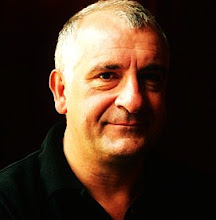






















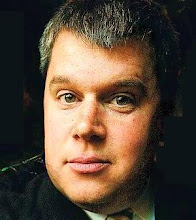

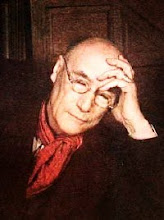

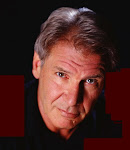


















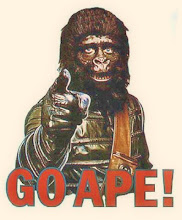















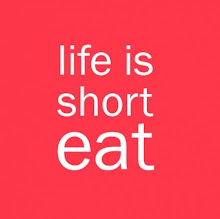

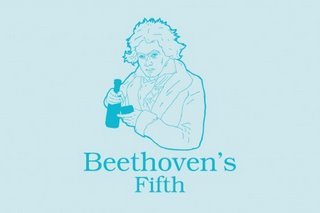








No comments:
Post a Comment